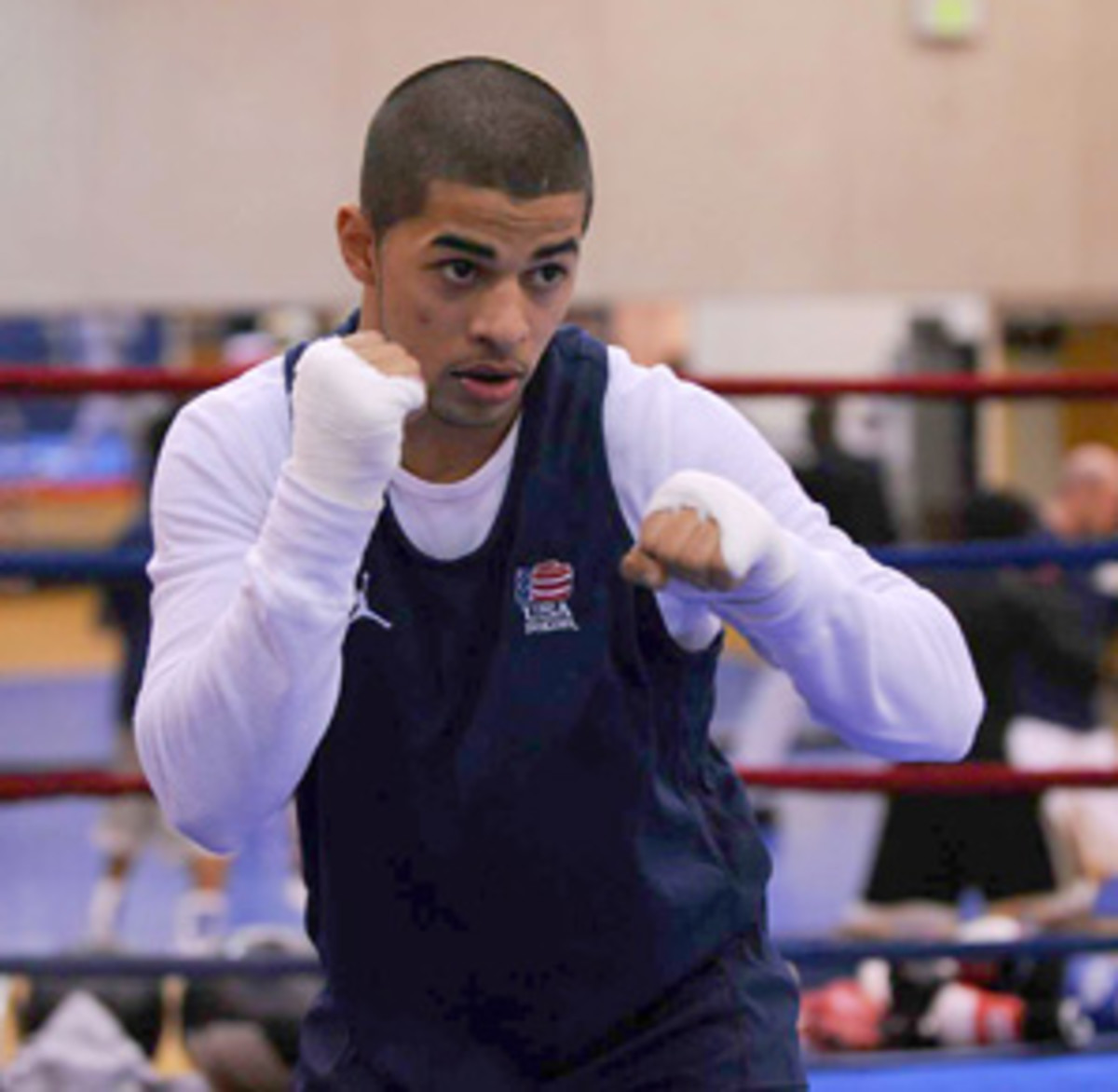U.S. boxer Ali makes history books before making Olympic trek


While much of the world watched the billowing black clouds of smoke pour into Manhattan's skyline on 9/11, the Ali family saw them from their home in Brooklyn.
While fear and anger gripped the country, the Ali family endured the additional fear of ignorance -- ignorance that would drive some of their fellow citizens to target Arab-Americans and Muslims.
But David Ali, a Muslim Yemeni-immigrant, kept faith that his Brooklyn neighbors, friends and coworkers wouldn't suddenly look at him and his family differently.
He kept faith that his son, Sadam, an aspiring amateur fighter who, at the time, had just begun competing in tournaments, would be treated in the same manner as always.
"I didn't know what was going on," Sadam said. "I was kid. My grandmother picked me up from school that day, but it's funny, you hear all these things that went on, how Arab-Americans and Muslims were getting harassed and how mosques were vandalized. But I believe in this country and the people in this country. Me and my family never experienced any of that. I never had people look at me differently after 9/11."
Now, nearly seven years since envisioning the worst, David can watch in confidence, and pride, as Sadam, 19, walks as the U.S. Olympic Team's lightweight at the Opening Ceremonies in Beijing on Aug. 8.
While the day will serve as proof to David that his faith, and those close to him, didn't betray him at a time they easily could have, it will also go down in boxing history books. Sadam will become the first Arab-American boxer ever, as well as the first from New York City since Mark Breland in 1984, to fight on the U.S. Olympic squad.
"We came from a neighborhood where everyone knows and loves Sadam," David said. "We never experienced any signs of dislike or prejudice. I never experienced any racism from anyone, which says something about our neighborhood and Americans. I saw and heard the things that were happening around 9/11. I know the stories that were out there. But I think our situation was normal, because the same people we've known all of our lives never changed once toward us. They're very proud of Sadam. I'm very proud of Sadam."
Though the Ali family escaped the dread of 9/11's lingering effects, Sadam's journey in the ring, and out, certainly wasn't free of tribulations.
"A lot of people in my neighborhood think that I'm Puerto Rican, because I always looked Spanish," he said. "But the people and the kids who knew I was Arab-American, they'd tease me and call me Saddam Hussein. I still get called Saddam Hussein by my friends. I laugh about it."
At one local tournament, Ali drilled his opponent with stinging combinations and blazing hand speed. The announcer, trying to keep the pace of the young fighter's movements, intermittently referred to him as Saddam Hussein during the broadcast. "And there's Saddam Hussein, trapping his opponent against the ropes and hurting his man," he squealed, hardly realizing what had just come out of his mouth.
The announcer caught himself and later apologized, but the reference has yet to flee Ali's mind.
Sadam's introduction to boxing came on a living room couch, sitting next to his father watching British boxer Naseem Hamed,who was also born to Yemeni parents, make his U.S. debut against two-time WBC featherweight champion Kevin Kelley at Madison Square Garden in 1997.
Days later, David took his son to a boxing gym and, almost instantaneously, Sadam became hooked. His days of karate went out the door as his entrance into the ring consumed his interest.
By the time he reached 13, Sadam garnered national attention after becoming the Junior Olympic National Champion. Four years later, he won his first of back-to-back Golden Gloves Championships, first as a featherweight, then as a lightweight in 2007. His feat in New York made him only the second boxer to win the tournament in two different weight classes in consecutive years.
In August of last year, Ali downed Terrence Crawford and Miguel Gonzalez at the U.S. Olympic Trials to earn a bid to Beijing and the role of successor to Oscar De La Hoya and Pernell Whitaker as the team's lightweight.
Dominating in a sport he had worked at for half his life, Ali's time in the ring was on a fast-track to the top. Until November 2007, that is.
At an exhibition tournament in Zunyi, China, Ali tested positive for the banned substance cathine, a stimulant found in many cold medicines. His Olympic dreams hung by a thread as he faced a possible two-year suspension.
But he maintained his innocence and appealed to the International Boxing Association, claiming that a doctor gave him a cold medicine when he came down with a cold in China. The doctor confirmed that the medicine contained the banned stimulant and the IBA decided to toss out his long-term suspension and leave in its place a mere three-month ban that ended in February 2008. In short, his shot at the Olympics were more than alive.
Now, with the days and hours dwindling before he takes center ring in Beijing, Ali keeps his mind focused. He's defied the odds. He's put in the time. He's endured his trials. He's already made history. But, for him, it's still not enough.
"I want to keep making history, because you have to give up a lot to get to this level of boxing," Sadam said. "Wearing the U.S. uniform and representing this country does mean something to me."
